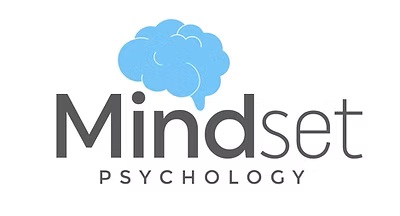In the bustling city of New York, where the pace of life is unrelenting, many find themselves grappling with the challenges of emotional regulation. Depression, anxiety, and stress are not uncommon among the city’s inhabitants, often exacerbated by the high demands of urban living. For those seeking a beacon of hope and a path to better mental health, Cognitive Behavioral Therapy in NYC emerges as a powerful ally. Mindset Psychology in NYC stands ready to guide individuals through their journey of healing, backed by a team of specialized therapists and comprehensive in-network insurance coverage.
Understanding Cognitive Behavioral Therapy
Cognitive Behavioral Therapy (CBT) is a form of psychotherapy that has revolutionized the way we understand and treat mental health disorders. It is grounded in the concept that our thoughts, feelings, and behaviors are interconnected, and that altering negative thought patterns can lead to changes in feelings and behaviors, thereby improving our mental health and well-being.
The Core Principles of CBT
CBT is based on several core principles, including
Psychological problems are based, in part, on faulty or unhelpful ways of thinking.
Psychological problems are also based, in part, on learned patterns of unhelpful behavior.
People suffering from psychological problems can learn better ways of coping with them, thereby relieving their symptoms and becoming more effective in their lives.
CBT focuses on dealing with current problems, rather than focusing on issues from the past. Therapists help patients identify specific challenges in their thought patterns and behaviors, setting concrete goals for overcoming these challenges
The History of Cognitive Behavioral Therapy
Cognitive Behavioral Therapy (CBT) is a form of psychotherapy that has evolved significantly since its inception. The roots of CBT can be traced back to the early 20th century, with the work of Dr. Aaron T. Beck in the 1960s marking a pivotal moment in its development. Dr. Beck, initially trained in psychoanalysis, began to notice that his patients experienced internal dialogues or thoughts that seemed to influence their feelings and behaviors. This observation led him to develop what is now known as CBT, a structured, goal-oriented therapy that aims to identify and change negative thought patterns and behaviors.
CBT has since grown to incorporate a range of techniques from both behavioral and cognitive psychology. It is continually being refined and adapted to treat a broad spectrum of psychological disorders, from depression and anxiety to eating disorders and post-traumatic stress disorder (PTSD), making it one of the most widely used and researched forms of therapy today.
Take the Next Step Toward Healing
You don’t have to navigate life’s challenges alone. Our Long Island therapists provide a safe, supportive space for you to heal and grow.
How Does CBT Work?
CBT works by focusing on the present thoughts and beliefs a person holds, rather than events from their past. The therapy is built on the premise that negative thought patterns and maladaptive behaviors contribute to psychological distress. Through CBT, individuals learn to identify, challenge, and replace these cognitive distortions with more realistic and positive thoughts, which in turn lead to more constructive behaviors and improved emotional regulation.
The process typically involves a partnership between the therapist and the patient, where both work together to understand the problem and develop strategies for change. Techniques may include journaling, role-playing, relaxation techniques, and mental distractions. Patients are often given homework assignments to practice these strategies in their daily lives, making the therapy highly practical and hands-on.
Length of CBT Treatment
The length of CBT treatment can vary depending on the individual’s needs, the specific issues being addressed, and the progress made during therapy. Typically, CBT is considered a short-term therapy approach, with many treatment plans ranging from 5 to 20 sessions. However, some individuals may require longer treatment to achieve their goals fully.
CBT is designed to be a time-limited and focused approach, with the aim of teaching individuals the skills they need to become their therapists. Through the course of treatment, patients gain valuable tools to cope with current and future challenges, making CBT not just a treatment but also a lifelong resource for better mental health.
The effectiveness and efficiency of CBT, its adaptability to different disorders, and its ability to provide individuals with lasting coping mechanisms have solidified its standing in the therapeutic community. As research continues and methodologies evolve, CBT remains at the forefront of psychological treatment, offering hope and practical solutions to those seeking mental health support.
Success Rates of CBT In NYC
The success of CBT in treating mental health conditions varies but is notably high for conditions like depression and anxiety, where it achieves a success rate of 50-70% among patients. These statistics are encouraging, especially considering the complexities of these conditions and the diverse population of NYC. The structured, goal-oriented approach of CBT, coupled with the city’s wealth of experienced therapists, creates an environment where patients can find meaningful, lasting solutions to their struggles.
CBT does more than just address specific psychological issues; it fosters resilience and emotional well-being. New Yorkers, known for their resilience, find in CBT a therapy that resonates with their inherent strength, teaching them practical skills to manage emotions, improve relationships, and navigate the complexities of life in the city. This aspect of CBT is particularly beneficial in a city that never sleeps, where the pace of life can often feel unrelenting.
The Mindset Psychology Advantage
Choosing Mindset Psychology for CBT comes with several distinct advantages. First and foremost is the clinic’s holistic care approach, which looks beyond symptoms to address the root causes of emotional distress. By accepting major insurance plans, Mindset Psychology ensures that access to top-quality mental health care is within reach for many NYC residents. Moreover, the clinic’s therapists excel in tailoring CBT to fit the individual needs and lifestyles of their patients, thereby maximizing the therapy’s impact.
Moving Forward
For those navigating the turbulent waters of emotional challenges, Cognitive Behavioral Therapy offers a lifeline. With its proven track record of success, particularly in the demanding context of NYC, CBT stands as a testament to the human capacity for growth and change. Mindset Psychology invites NYC residents to explore the transformative potential of CBT, supported by their experienced therapists and commitment to providing personalized, effective care. Embrace the journey to emotional well-being; let Mindset Psychology be your guide.



